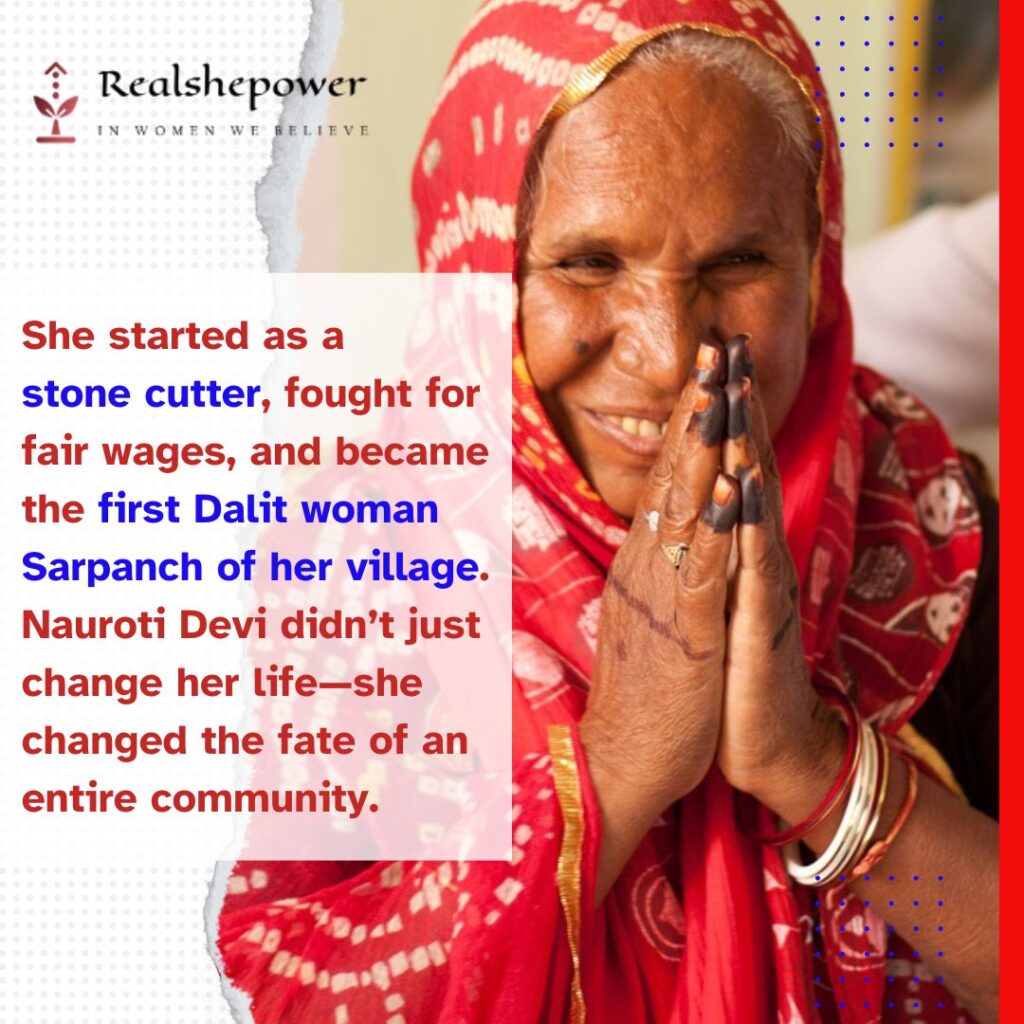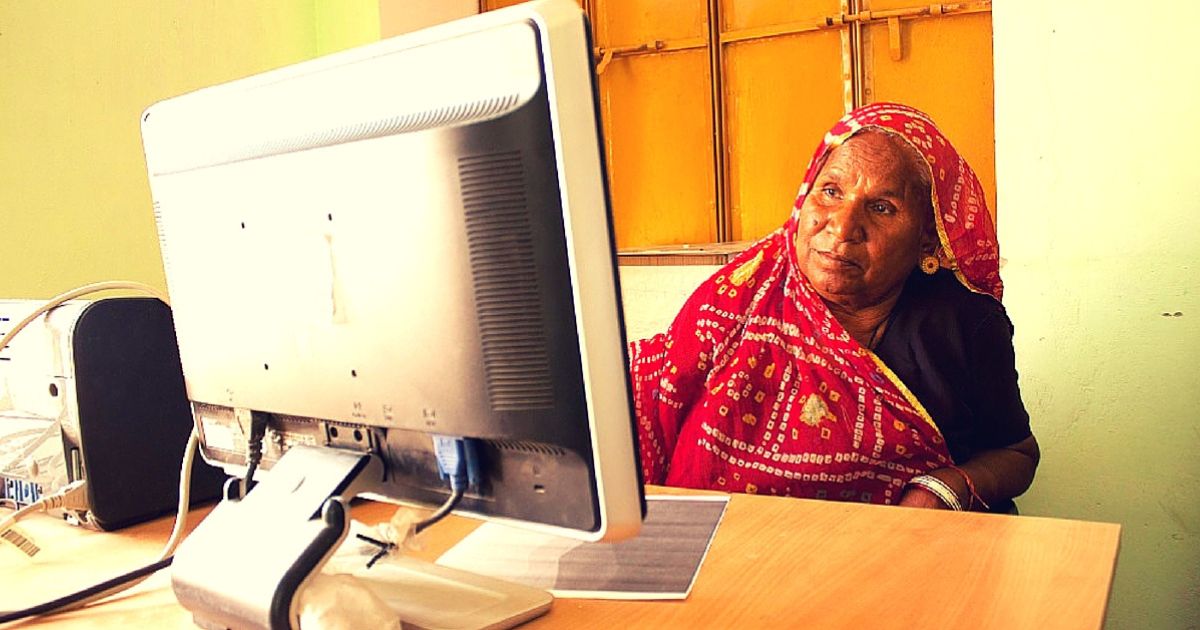Nauroti Devi never planned to be a leader. She never imagined standing before crowds, demanding justice. But when life pushed her into hardship, she pushed back harder.
Nauroti Devi Born into Struggle, Driven by Strength
Nauroti Devi was born in a Dalit family in Kishangarh, Rajasthan. Her childhood was shaped by poverty, caste discrimination, and the daily grind of survival. Like many girls in her village, she was never sent to school. Instead, she started working as a stone cutter at a young age. The work was brutal. Under the scorching sun, she lifted heavy rocks, earning barely enough to survive.
She watched as men earned more for the same work. She saw how laborers were treated as if they were invisible. But even then, she knew this wasn’t right. She didn’t have formal education, but she had something just as powerful—courage.
“I was born a laborer, but I refused to die as one.” – Nauroti Devi
A Fight for Fair Wages
One day, she learned about the Minimum Wages Act. The law promised fair pay, yet no one in her village received it. She began speaking up, demanding equal wages. Many warned her to stay silent. Others mocked her, saying a Dalit woman had no place in activism.
She didn’t listen.
She joined a local labor movement, standing alongside workers who had been underpaid for years. Together, they protested, filed complaints, and forced authorities to act. Their voices became too loud to ignore. For the first time, laborers in her village received fair pay.
Her fight caught the attention of Barefoot College in Tilonia, an organization working for rural empowerment. They invited her to learn about labor laws, literacy, and leadership. She seized the opportunity.
At Barefoot College, she learned to read and write. She studied laws and rights. She understood how the system worked—and how to change it.
From Activist to Global Advocate Nauroti Devi

Nauroti Devi didn’t stop at her village. She traveled across Rajasthan, educating laborers about their rights. She met government officials, confronted corrupt contractors, and ensured fair wages for thousands of workers.
Her work took her beyond India. She was invited to international conferences, where she spoke about labor rights and grassroots activism. From an illiterate laborer, she had become a global advocate.
But she wanted to do more.
Becoming the Sarpanch: Leading from the Front
In 2010, she decided to contest the Panchayat elections in Harmada, Rajasthan. Some laughed at her. Others tried to stop her. But the villagers, especially women, stood by her. They saw her as a leader who fought for them.
She won. She became the Sarpanch (village head), a historic moment for a Dalit woman.
As Sarpanch, she transformed Harmada. She ensured government schemes reached the people. She prioritized education, especially for girls. She improved water conservation and infrastructure. But one of her most groundbreaking initiatives was introducing technology to the village.
She installed a computer in the Panchayat office—something unheard of in rural Rajasthan. She encouraged women to learn how to use it. She organized training sessions, teaching them how to access information, send emails, and use digital tools.
“Technology is power. If women learn it, they can change their future.” – Nauroti Devi
A Law That Stood in the Way of Nauroti Devi
In 2015, the Rajasthan government passed a law requiring Panchayat candidates to have a minimum education qualification of Class 8. Despite her proven leadership, Nauroti Devi could not contest again.
She called the rule unfair. “A piece of paper does not determine a leader,” she said. But the law remained, and she had to step down.
A Legacy That Lives On
Laws couldn’t stop her. She continued working at the grassroots level. She traveled from village to village, encouraging women to take leadership roles. She educated them about their rights, inspiring them to fight for what they deserved.
Today, many women in Rajasthan have entered politics because of her. Many villages have better wages and living conditions because of her. Her fight did not end when she left office—it grew stronger.
Nauroti Devi’s story is proof that leadership is not about privilege. It’s about action. She went from breaking stones to building policies, from an illiterate laborer to an international speaker.
She once said, “I started this journey alone, but now there are thousands of women walking with me.”
She didn’t just change her life. She changed the lives of countless others.
And she’s not done yet.









































